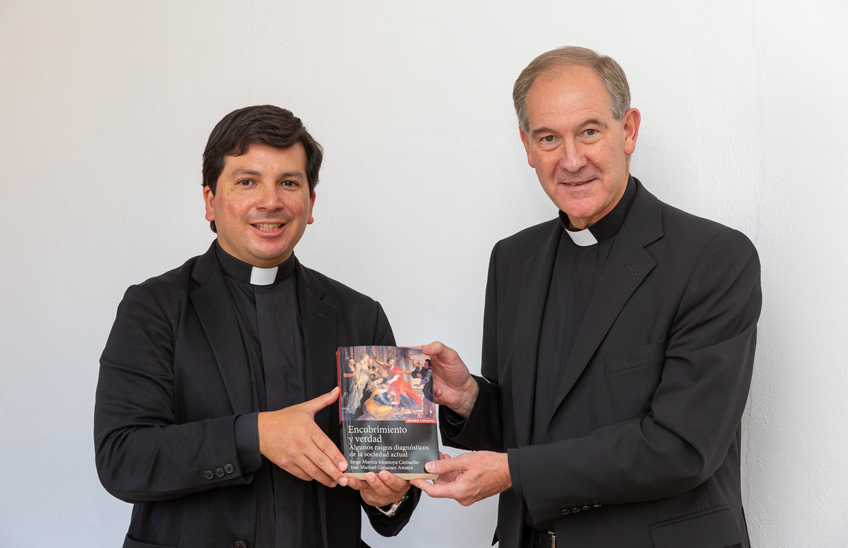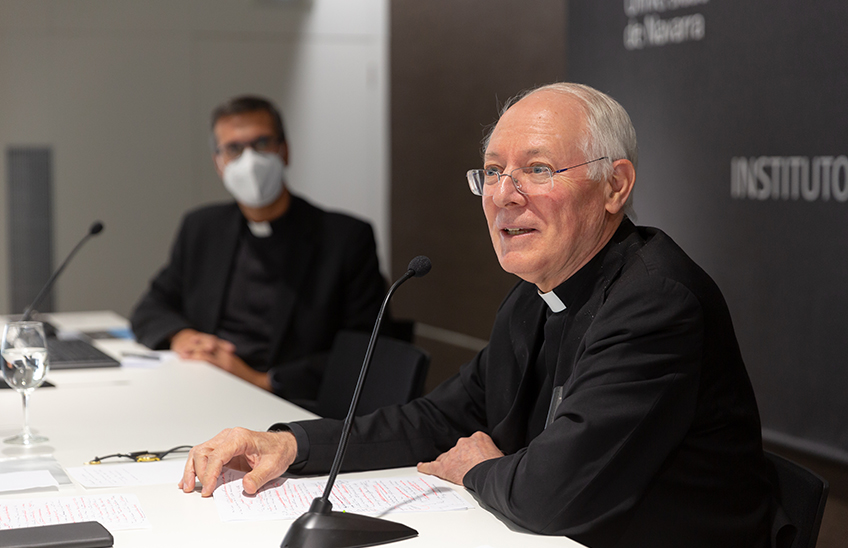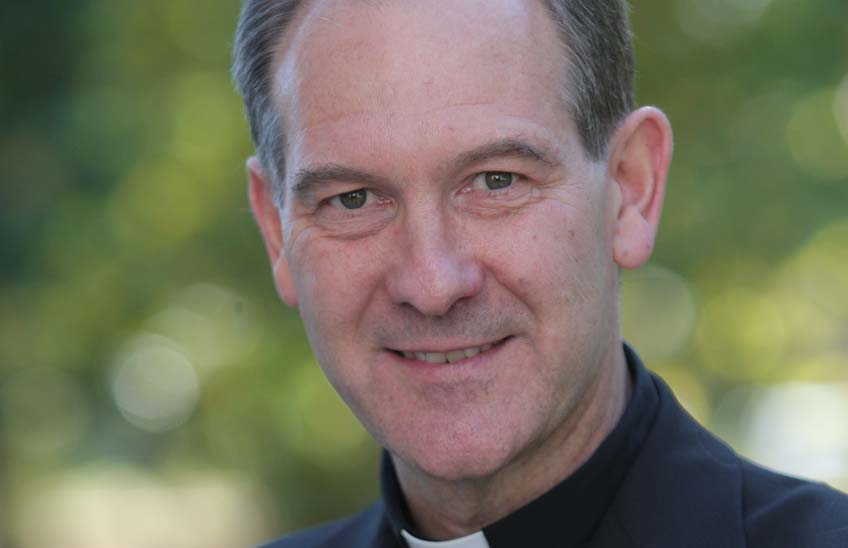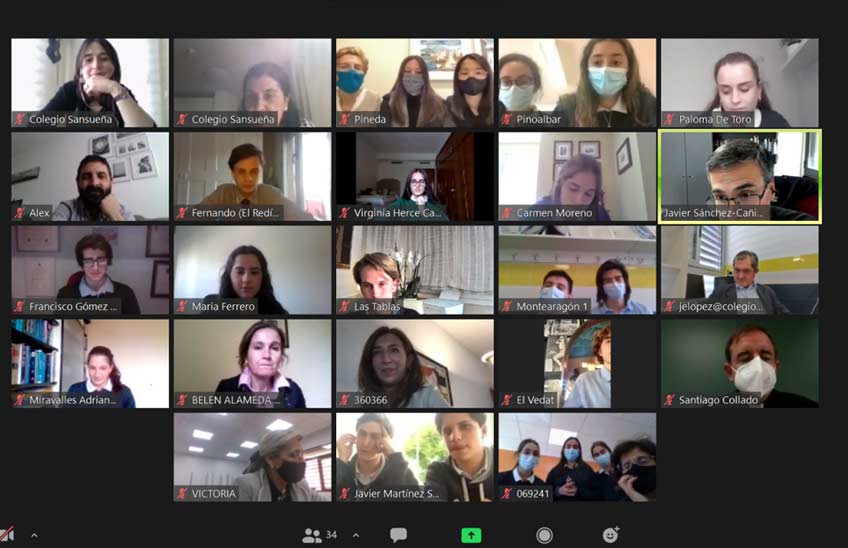"To say that the human being is nothing more than the behavior of biochemical processes is not only difficult to justify but also difficult to understand."
Moisés Pérez Marcos, Dominican and doctor at Philosophy, gave a lecture at the University of Navarra on the worldview of naturalism seminar .
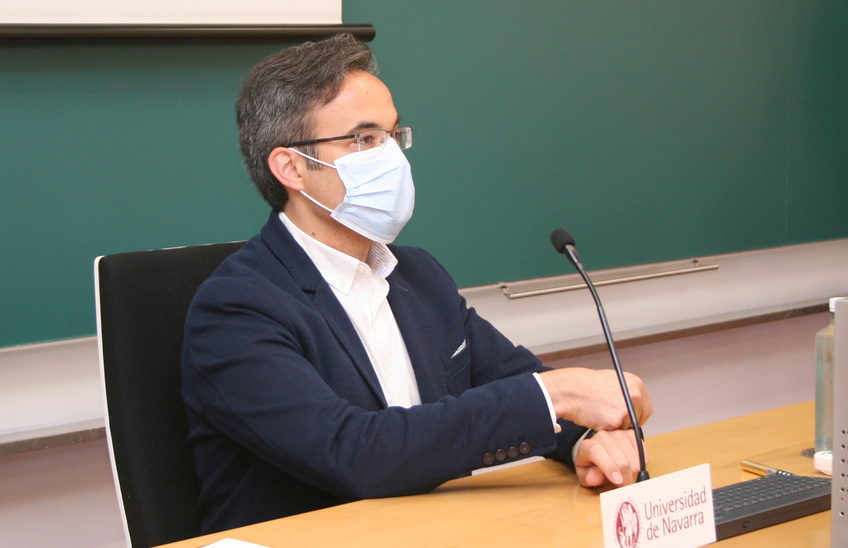
PhotoChusCantalapiedra/Moisés Pérez Marcos.
21 | 05 | 2021
"To say that the human being is nothing more than the behavior of biochemical processes is not only difficult to justify, but to understand. The reasoning 'nothing more than', the nadamasqueism, is a solvent". This was stated at the University of Navarra by Moisés Pérez Marcos, Dominican, graduate in Theology and doctor in Philosophy. He did so in the framework of the May seminar of group 'Science, Reason and Faith', centered on 'What if naturalism were a pseudo-religion? The anthropological and theological challenge of naturalism'.
exhibition Professor Pérez Marcos gave a brief overview of what naturalism is, understood as a worldview, and drew out the consequences that this vision has for human beings and for the existence of God. He described the two main branches of naturalism: physicalism and biologicism, and asked what would happen if, instead of considering naturalism as a body of doctrine, it were an attempt to subvert natural theology as it has always been.
In his message he emphasised naturalism as a grand aetiological narrative that explains the origin of the world and of human beings: "It offers a vision of the cosmos where there is no room for a creator God. Naturalism strives to replace classical theism and to offer an alternative in all areas, but especially in the intellectual sphere.
He also stressed the importance of establishing a discussion between two worldviews that claim science for themselves: naturalism and theology. "One cannot say that one enjoys epistemic favour a priori. It would not be fair to say that naturalism has the advantage because it has more to do with the natural sciences," he said.
Moisés Pérez Marcos is a Dominican, doctor in Philosophy and graduate in Theology. He teaches several subjects of Philosophy at the School of Theology San Vicente Ferrer in Valencia (Philosophy of science and nature; Philosophical anthropology; Science and religion; Philosophy of language and hermeneutics). He has recently published La cosmovisión naturalista. Consecuencias epistemológicas, ontológicas y antropológicas (San Esteban, 2021) and is the author, together with Alfredo Marcos, of Meditación de la naturaleza humana ( BAC, 2018).

